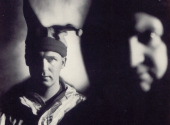
Milestones in Music History #60: Taylor Swift, A New Era
The contemporary musical world is so complex and multifaceted. Music has taken on a multidimensional perspective that is almost impossible to decipher and describe. Over the course of this series, we have talked about many different musicians who have captured the voice of their times. But today, one artist has embodied the spirit of our times like no other, and taken the burden of guiding music to come. Yes, none other than the magnetic Taylor Swift.
"To me, fearless is not the absence of fear. It's not being completely unafraid. To me, being fearless is having fears. Fearless is having doubts. Lots of them. To me, fearless is living despite those things that scare you to death." These are some of the liner notes from the 2008 album Fearless, and they say a lot about the character who for many, made pop music enjoyable again.
The fight against our fears is about admitting you have them, which strongly represents the spirit of our times. And it was this approach that made the world's biggest pop idol emerge from a Christmas tree farm in Pennsylvania. In truth, however, Taylor had art – and music in particular – in her blood. She was named after the famous American singer-songwriter James Taylor.
Furthermore, her grandmother was an opera singer and a significant influence on her, who introduced her to the world of music. Thus, Taylor began her early listening, she was attracted to artists such as LeAnn Rimes and Shania Twain; she was also part of a theatre group and travelled frequently to New York for singing and drama lessons.
In the meantime, she was learning guitar and submitting demos of her karaoke covers of Dolly Parton and the Dixie Chicks. She also began her first performances in her hometown, where she played in small venues. But everything changed after watching a documentary about Faith Hill, which turned out to be a revelation: she had to go to the country music capital of America.
Swift's parents, recognising her talent and enthusiasm, encouraged her to pursue music. Thus, they relocated to Nashville, Tennessee, a hub for country music, to provide her with better opportunities. This move would prove to be a crucial step in Swift's journey to stardom. In Nashville, Swift began performing at local events and festivals, honing her craft and building a reputation as a talented young singer-songwriter.
There she was soon discovered by music industry executive Scott Borchetta, who signed her to his independent record label, Big Machine Records. This partnership would be instrumental in launching Swift's career. In 2006, she released her debut album Taylor Swift, a testament to Swift's raw talent, introspective songwriting and country-pop sensibilities.
The album's themes were deeply personal, with Swift drawing inspiration from her teenage years and experiences. The lyrics are introspective, relatable and honest, making the album a confessional of sorts. Songs like "Teardrops on My Guitar" and "Should've Said No" address themes of unrequited love, heartbreak and self-discovery, resonating with a generation of young people looking for music that spoke to their emotions.
Swift's ability to craft relatable narratives has been a hallmark of her career and her debut album set the tone for this approach. In addition to its commercial success, the album was also critically acclaimed. Having thus immediately entered the heights of the charts and national success, Taylor began work on her second, much more hard-hitting album, which was released two years later.
Fearless marked a turning point in Swift's career as she transitioned from country music to a more mainstream pop sound. One of the most notable aspects of this record was Swift's songwriting. Songs like "Love Story" and "You Belong with Me" capture the universal experiences of falling in and out of love, while tracks like "Fearless" and "Change" inspire listeners to be brave and follow their dreams.
Her voice is emotive and powerful, conveying the raw emotions of each song with authenticity and vulnerability, like country music. But at the same time, it expresses the energy and the power from within, closer to pop. In her third work, Speak Now, written entirely by her while touring for her second album, Taylor maintained an intimate, gentle and introspective key. And with Red, her fourth studio album released in 2012, she ushered in a new pop era.
The pop wave continued in her next two works, 1989 (2014) and Reputation (2017), but came to a halt in 2019 with the album Lover, which marked the end of her collaboration with Big Machine Records and a return to her country roots, albeit with some pop elements. Needless to say, the success was resounding and the album was multi-awarded and critically acclaimed.
It also made it clear what Taylor was made of, as she certainly didn't want to fall back on the usual commercial gimmicks and become yet another pop icon. And she confirmed this with not one, but two albums, both released in 2020, Folklore and Evermore, which veered towards indie and folk, with even a touch of alternative rock. Swift adopted a more narrative-driven approach in these albums, exploring characters and scenarios that feel like they could have been plucked from a novel.
Thus, Taylor revealed another side of herself, her unparalleled versatility and a continuous desire to innovate. And so, in 2022 she came out with her tenth studio album, Midnights, which included elements of R&B, electro-pop, hip-hop, electronica and synth-pop. The album displaced every chart and became the most listened-to album on Spotify.
As a consequence of this, she received numerous awards, multiple Grammies and prizes in various categories, and became the most listened-to artist on major streaming platforms: in short, she became the most famous – and influential – music icon. In the same year, she started her Eras Tour, a world tour in which Taylor took fans through her entire career.
A tour that was also judged to have a great cultural impact and which made Taylor Swift's greatness and artistic acumen known to the world, even to those removed from pop and unfamiliar with the universe of mainstream music; Taylor is truly an exception in this context. And confirming this was the post-tour release of her eleventh work, begun during Midnights but developed during the Eras Tour, the album The Tortured Poets Department.
Here she once again managed to innovate: there is intimacy and introspection, the country sound of her demos and early albums, musical folk and chamber-pop, with the use of drum machines and synthesizers. The album was a huge success and exploded on streaming platforms, becoming the first album to reach one billion listens on Spotify in one week.
Taylor Swift has undeniably had a profound impact on the music industry and has shaped the landscape of today's music in numerous ways. One of the most significant contributions she has made is her ability to bridge the gap between country and pop music, creating a unique sound that appeals to a wide range of audiences. By blending elements of both genres in her music, Swift has opened the door for other artists to experiment with different styles and push the boundaries of traditional genre labels.
Furthermore, Taylor Swift's songwriting prowess has set a new standard for authenticity and vulnerability in popular music. Her deeply personal lyrics and storytelling abilities have resonated with listeners on a profound level, leading to a new wave of artists who prioritize emotional depth and honesty in their music.
She has helped artists grow bigger, such as Bon Iver, Lana del Rey and Florence and The Machine, and she inspired a wide variety of musicians, for example, Billie Eilish, The National and KT Tunstall. Even Paul McCartney, who was inspired by Taylor, composed the song ‘Who Cares’ in 2018, and Snoop Dogg, who considered her to be influential in music rights discourse.
In fact, in addition to her musical contributions, Taylor Swift has also been a trailblazer in the industry when it comes to artist control and ownership. Her decision to speak out against streaming services and fight for fair compensation for musicians has sparked important conversations about the value of music and the rights of artists.
An eclectic, talented artist, able to reinvent herself and feel the feeling of our times, simple yet brilliant and sophisticated, Taylor Swift enchants with her voice, her lyrics and her harmonies. A book of which we still only know the first chapters; we will discover the rest with time, and Taylor will certainly not disappoint her fans, attracting new ones.
How important is it for artists to constantly take risks and innovate? How much is a musician willing to reveal about themselves and to talk about their feelings? What is Taylor Swift's legacy to the next generation? And will there ever be a new Taylor?
Leave your opinion in the comments below!
If you have found an error or typo in the article, please let us know by e-mail info@insounder.org.





